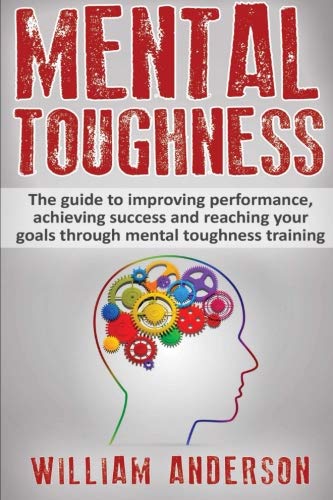In an ever-changing world filled with challenges and uncertainties, the concept of resilience has become more critical than ever. Resilience is not merely the ability to bounce back from adversity; it encompasses mental toughness, emotional endurance, and the capacity to thrive despite difficulties. This article explores the 177 secrets to mental toughness, redefining resilience in the process, and offering practical strategies to cultivate this vital trait.
Understanding Resilience and Mental Toughness
Resilience refers to the capacity to recover quickly from difficulties, while mental toughness is the ability to remain focused, determined, and composed in the face of challenges. Together, these traits foster adaptability and strength in overcoming life’s hurdles.
Key Components of Resilience

- Emotional Regulation: The ability to manage one’s emotions effectively.
- Optimism: A positive outlook that encourages perseverance.
- Social Support: Building a network of relationships that provides assistance.
- Problem-Solving Skills: The ability to devise effective solutions under pressure.
- Self-Efficacy: Believing in one’s capabilities to achieve goals.
The 177 Secrets to Building Mental Toughness

While the secrets to mental toughness can be extensive, they can be categorized into several core areas. Here, we will explore these areas, highlighting key strategies and actionable insights.
1. Mindset Matters
![]()
Your mindset plays a crucial role in shaping your resilience. Adopting a growth mindset can significantly enhance your ability to face challenges.
- Embrace Failure: View failures as learning opportunities rather than setbacks.
- Practice Gratitude: Regularly reflecting on what you are thankful for can shift your focus to the positive.
- Visualize Success: Use visualization techniques to imagine achieving your goals.
2. Physical Wellness
Physical health directly influences mental resilience. Prioritizing your physical well-being can enhance your ability to cope with stress.
- Exercise Regularly: Engaging in physical activity releases endorphins and reduces stress levels.
- Maintain a Balanced Diet: Nutritious food fuels both body and mind, promoting better mood and energy levels.
- Practice Sleep Hygiene: Quality sleep is essential for cognitive function and emotional regulation.
3. Building Strong Relationships
Social connections are fundamental to resilience. Cultivating strong relationships can provide a support system during tough times.
- Network Actively: Join groups or communities that share your interests.
- Communicate Openly: Share your feelings and experiences with trusted friends or family members.
- Offer Support: Helping others can enhance your own resilience.
4. Developing Coping Strategies
Effective coping strategies can help you navigate stress and adversity with greater ease.
- Mindfulness and Meditation: Engage in mindfulness practices to enhance self-awareness and reduce stress.
- Journaling: Writing about your experiences can help process emotions and clarify thoughts.
- Setting Boundaries: Learn to say no to protect your mental health.
5. Goal Setting and Achievement

Setting realistic and achievable goals is a cornerstone of mental toughness.
- SMART Goals: Ensure your goals are Specific, Measurable, Achievable, Relevant, and Time-bound.
- Break Goals into Steps: Divide larger goals into manageable tasks.
- Celebrate Small Wins: Recognizing progress boosts motivation and resilience.
Case Studies: Resilience in Action
Examining real-life examples of resilience can provide valuable insights into how mental toughness manifests in different scenarios.
Case Study 1: Athletes and Mental Toughness

Many elite athletes exemplify mental toughness. For instance, Serena Williams, a tennis champion, has faced numerous challenges, including injuries and personal setbacks. Her ability to remain focused and maintain a positive mindset has led her to achieve remarkable success, demonstrating the power of resilience in sports.
Case Study 2: The Business World

In the business realm, Howard Schultz, former CEO of Starbucks, faced significant challenges while establishing the brand. His resilience and determination to overcome obstacles, such as financial difficulties and market competition, ultimately led to Starbucks’ global success. Schultz’s journey underscores the importance of mental toughness in achieving long-term goals.
Statistics on Resilience and Mental Toughness
Understanding the impact of resilience on mental health can further emphasize its importance. Here are some notable statistics:
- According to the American Psychological Association, resilient individuals are 50% more likely to cope with stress effectively compared to those lacking resilience.
- A study published in the journal Health Psychology found that individuals with higher resilience scores experienced significantly lower levels of anxiety and depression.
- Research indicates that 90% of resilient individuals employ positive coping mechanisms, contributing to better overall well-being.
Practical Steps to Enhance Resilience
To cultivate resilience and mental toughness, consider incorporating the following practical steps into your daily routine:
- Practice self-care by engaging in activities that rejuvenate and energize you.
- Seek professional help if needed; therapy can provide valuable tools for building resilience.
- Engage in continuous learning to develop new skills and adapt to changing circumstances.
- Reflect regularly on your experiences to identify areas for growth and improvement.
Resilience is a multifaceted trait that can be cultivated through intentional effort and practice. By understanding its components, implementing practical strategies, and learning from real-life examples, individuals can enhance their mental toughness and navigate life’s challenges with greater ease. The 177 secrets to mental toughness serve as a roadmap for anyone looking to redefine resilience in their lives. As we embrace these principles, we not only empower ourselves but also inspire those around us to foster a culture of strength and perseverance.